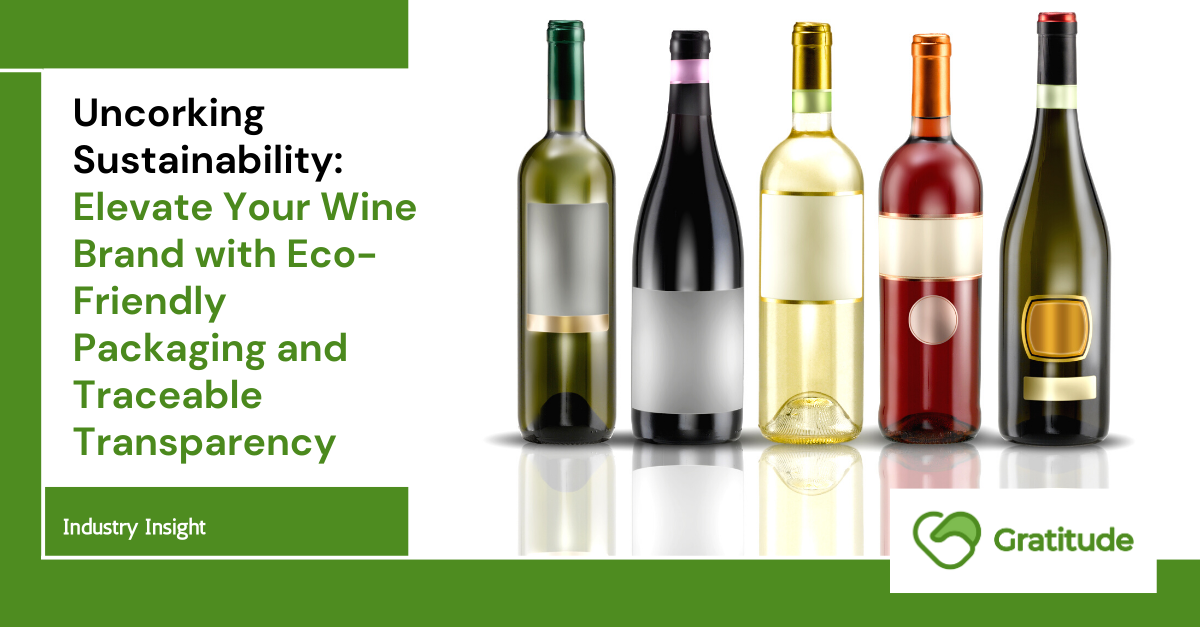The transition towards eco-friendly packaging in the wine industry is propelled by a myriad of factors including consumer engagement, brand image enhancement, and environmental conservation. Here are some strategies and real-world examples of how wine packaging can become more eco-friendly:
Utilization of Recycled Materials:
Garçon Wines has pioneered the production of flat wine bottles made from recycled PET, which is 87% lighter than glass. This design not only reduces material use but also enhances shipping efficiency by fitting 91% more product on a shipping pallet, thus lowering carbon emissions associated with transportation.
Adoption of Bag-in-Box Systems:
Bag-in-Box (BIB) systems are recognized as a more environmentally friendly packaging solution. The system is beneficial due to its lower material usage and reduced transportation emissions, given its compact design.
Implementation of Recycled Paper Packaging:
‘WinePacks’ bottle boxes are crafted from 100% recycled paper and are designed with eCommerce in mind. This type of packaging can accommodate up to 12 bottles, making shipping economical and less environmentally taxing.
Engagement in Sustainable Practices
Fetzer Vineyards is transitioning towards regenerative agriculture and aims to attain a climate positive status by 2030. A segment of this ambition is dedicated to refining the packaging life cycle which encompasses the extraction of raw materials, utilization of recycled materials, and enhancement of bottle transportation methods. Recently, Fetzer revamped its packaging to include a lighter bottle design, and eco-friendly capsules and labels. This overhaul resulted in a 14.8% reduction in packaging weight, a 15.7% decrease in carbon footprint, and an 11% cut in transportation emissions.
Consumer Education
It’s crucial to educate consumers that lighter and more sustainable packaging is synonymous with quality and responsibility. This education can help shift consumer behavior towards preferring eco-friendly packaged products, thus promoting a greener industry.
Reducing Carbon Footprint of Packaging
A study commissioned by Alko, Finland’s national alcohol monopoly, highlighted the significant environmental impact of wine packaging, thereby underscoring the necessity for eco-friendly packaging solutions in reducing the carbon footprint6.
The shift towards eco-friendly wine packaging is not just a fleeting trend but a crucial step towards a sustainable future in the wine industry. Adopting eco-conscious packaging solutions, such as those showcased by Garçon Wines, Bag-in-Box systems, WinePacks, and Fetzer Vineyards, not only significantly reduces the environmental footprint but also resonates well with the modern consumer who is increasingly eco-aware.
One of the critical aspects of sustainable packaging is the transparency and traceability of the materials and processes used. This is where innovative solutions like those offered by SipLabel.com come into play. SipLabel provides a platform that allows wine producers to authenticate and trace their products throughout the supply chain. By utilizing blockchain technology, SipLabel ensures that all claims regarding eco-friendly packaging and sustainable practices are verified and transparent.
As the wine industry continues to evolve in a more sustainable direction, having a trustworthy verification system in place is indispensable. It not only instills confidence in consumers but also provides a competitive advantage to wine producers committed to eco-friendly practices. With a reliable traceability platform like SipLabel, wine producers can unequivocally validate their sustainable claims, thereby enhancing brand integrity and consumer trust. In a market that’s becoming increasingly saturated, standing out through verified sustainable practices is not just good for the earth; it’s good for business too.
Are your wine business looking for a platform to narrate your wine’s story, EU compliance, and become more transparent in the future? Talk to our representative for FREE at :
Website : https://siplabel.com
Twitter : https://www.twitter.com/more_gratitude
Linkedin : https://www.linkedin.com/company/more-gratitude
Instagram : https://www.instagram.com/more_gratitude/
Facebook : https://www.facebook.com/followgratitude
Medium : https://www.medium.com/@more_gratitude
Sign up to our exclusive newsletter for special offers and latest industry insight :

